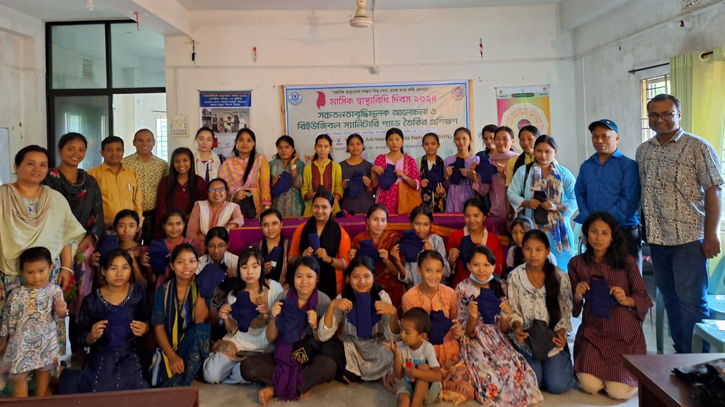
Photo : Courtesy
In commemoration of World Menstrual Hygiene Day, a Trinamool Development Organization, and Khagrapur Mahila Kalyan Samity facilitated an enlightening discussion and training session centred on the production of reusable sanitary pads. Held at the Zabarang Resource Center in Khagrapur, Khagrachari, the event witnessed the participation of esteemed guests, community leaders, and passionate advocates for menstrual health.
The discussion program, graced by Khagrachari Additional Deputy Commissioner and Deputy Director (Local Government) Nazmun Ara Sultana as the chief guest and presided over by Shefalika Tripura, President of YARN, fostered an atmosphere of open dialogue and constructive engagement. Notable figures such as Ripon Chakma, the executive director of Trinamool Development Agency, and PSDI Consultancy Chairperson Md. Ishaque Farooquee shared insights emphasizing the importance of menstrual health awareness and the pivotal role of reusable sanitary pads in achieving cost-effectiveness and environmental sustainability.
Ripon Chakma underscored the transformative impact of the “Our Life, Our Health, Our Future” project funded by Simavi and the European Union, highlighting the imperative of imparting knowledge and skills in reusable sanitary pad production to empower individuals across communities.
In her address, Shefalika Tripura emphasized breaking the silence surrounding menstruation and advocating for open conversations with family, friends, and peers. Deputy Secretary Nazmun Ara Sultana reaffirmed the benefits of transitioning to reusable sanitary pads, citing their economic advantages and eco-friendly nature. She urged for collective efforts in promoting menstrual hygiene and encouraged individuals to prioritize their health through nutritious diets and access to essential services.
Following the enlightening discussions, thirty girls and young women were trained in the art of crafting reusable sanitary pads by hand, symbolizing a step towards self-sufficiency and menstrual health empowerment.
Messenger/Sajib








